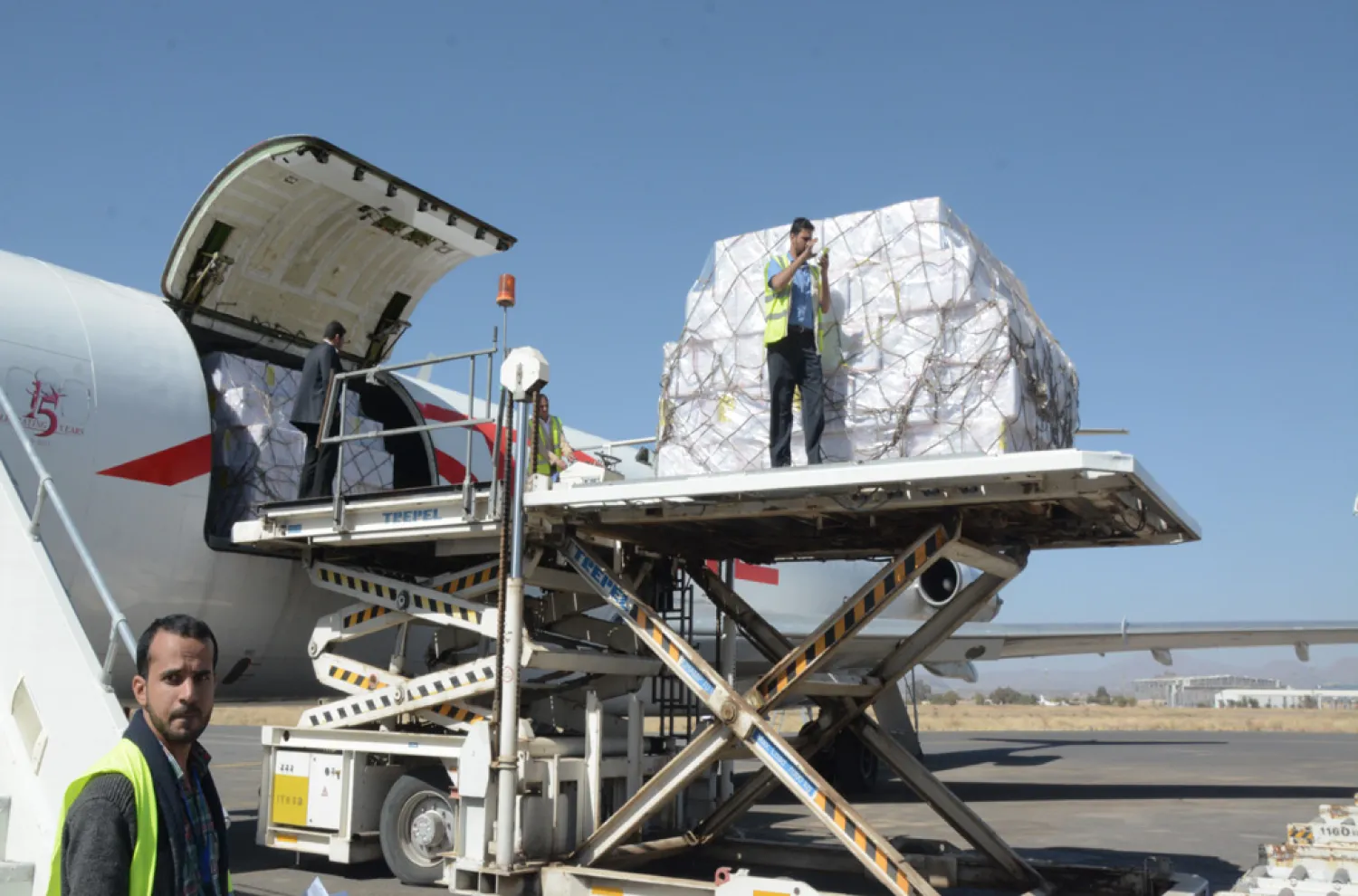Several UN teams will head to Riyadh in the upcoming days to meet with the coalition to support Yemen's legitimacy to discuss inspection mechanisms and verification. This comes in response to the coalition's request to ensure the insurgency does not succeed in smuggling more weapons and contraband into Yemen.
The weapons pose a threat to the international navigation and can be used to target civilians in neighboring countries, including Saudi Arabia.
Saudi Arabia's Permanent Representative to the United Nations in New York, Abdullah al-Maalmi revealed that the teams and delegations heading to Saudi Arabia had been determined and the visit should as early as of December.
Since Decisive Storm began in Yemen, UN had been inspecting every ship entering the country, however the coalition had confirmed more than once that smuggling operations still take place in the country, accusing Iran of supporting Houthis.
After Houthis launched a missile at Riyadh, Saudi-led coalition announced a temporary closure of the Yemeni ports. Two days later, the ports opened in areas under the Yemeni legitimacy control and the rest were reopened for humanitarian aid on November 22.
In a press conference held in Riyadh, Saudi-led coalition revealed several photos and evidence that show Iran's involvement in arming Houthis in Yemen.
An informed source confirmed that "foreign support from the Iranian regime came to sustain the operations of Houthis threatening the security of Saudi Arabia and Gulf countries, as well as international security in the Strait of Bab al-Mandeb and the Red Sea."
The source also pointed out that Iran's aggressive actions are targeting Mecca and other Saudi cities.
Iran's behavior is a breach of UN resolutions, including Resolutions 2231 and 2216, according to the source, who also indicated that the technical support and training to Houthis threaten regional security.
He called upon the United Nations and the international community to impose strict measures to stop the Iranian regime and hold it accountable for violating the UN resolutions and supporting groups like Lebanese Hezbollah and Houthis.
Remnants of four ballistic missiles fired into Saudi Arabia by Yemen’s Houthi rebels this year appear to have been designed and manufactured by Iran, according to a "confidential" report by United Nations sanctions monitors to the Security Council seen by Reuters.
Speaking to Asharq al-Awsat, Maalami stated that Saudi Arabia had been cooperating with the UN and facilitated the visit of the team and informed them of all information available about the missiles.
The independent panel of UN monitors said it “as yet has no evidence as to the identity of the broker or supplier” of the missiles, which were likely shipped to the Houthis in violation of a targeted UN arms embargo imposed in April 2015.
Experts visited two Saudi Arabian military bases to see remnants gathered by authorities from missile attacks on Saudi Arabia on May 19, July 22, July 26 and November 4.
“Design characteristics and dimensions of the components inspected by the panel are consistent with those reported for the Iranian designed and manufactured Qiam-1 missile,” the monitors wrote.
Reuters also reported GlobalSecurity.org public policy organization which explained that Qiam-1 has a range of almost 500 miles and can carry a 1,400-pound warhead.









